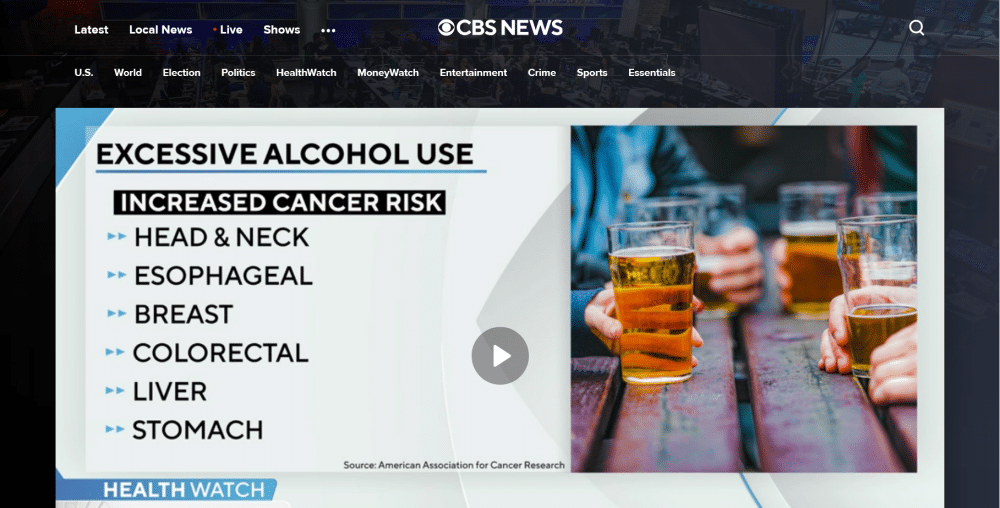Alcohol abuse kills over 140,000 people in the U.S. every year. Death caused by alcohol poisoning, motor vehicle or other accidents, violence, suicide, and alcohol-related diseases make alcohol abuse the third most preventable cause of death in the United States.
What is Alcoholism?
Alcohol abuse, alcohol dependence, and alcohol addiction fall under the clinical diagnostic criteria for alcohol use disorder (AUD). The National Institute on Alcohol Abuse and Alcoholism (NIAAA) defines AUD as “a medical condition characterized by an impaired ability to stop or control alcohol use despite adverse social, occupational, or health consequences.” Regular alcohol misuse causes changes in the brain, and people in recovery are vulnerable to relapse.
Relapse means to resume drinking alcohol after a period of sobriety. National Institute on Drug Abuse (NIDA) statistics find that 40 to 60 percent of people with a substance use disorder, including alcohol, relapse at least once. An early study by the NIAAA found that up to 90 percent of those with an alcohol use disorder relapsed at least once in the first four years after treatment.
The COVID-19 pandemic has significantly impacted alcohol-related deaths, with deaths rising approximately 25 percent between 2019 and 2020. While all age groups were affected, the increase was the highest in the 35-44 age group.
How Alcohol Affects the Body and Brain
Alcohol interacts with the reward and motivation center of the brain and with areas that regulate motor function, emotions, stress reactions, learning, and memory. When a person regularly consumes alcohol, these brain functions may alter to adapt to its presence.
The influx of alcohol causes an unnaturally high surge of dopamine and other chemical hormones that deliver an intense sense of well-being, serving to reinforce the use of alcohol powerfully.
Tolerance is when the body has become physically dependent on alcohol, heightening the risk of addiction. As the body changes and learns to “tolerate” regularly consumed amounts of alcohol, it increasingly demands higher amounts to trigger the effects previously achieved with less alcohol. If a person stops drinking after tolerance, dependence, or addiction takes hold, they will experience withdrawal symptoms.
As a person with an alcohol use disorder goes through detox and rehabilitation, their body seeks to regain normal function and balance. This process may cause intense withdrawal effects initially, which usually lessen over time. However, significant alcohol cravings may last much longer and often contribute to relapse.
Dangers of Relapse
Relapse usually happens gradually. The earlier a person recognizes the warning signs of relapse, the better their chances of taking action to avoid it. Research identifies three stages of relapse:
- Emotional – not thinking about drinking, but emotions and behaviors are increasing the risk they will relapse.
- Mental – thinking about past drinking and minimizing the negative consequences.
- Physical – resuming alcohol use, especially when triggered or the opportunity presents itself.
Shame and guilt about past alcohol use increase a person’s risk of relapse. If they relapse, these negative emotions often intensify, creating a cycle of abstinence and relapse that is difficult to break without professional help.
The dangers of relapse include potentially severe physical and mental reactions when substance use resumes.
Once a person with AUD gets through the initial withdrawal process, most symptoms ease or stop, indicating the body is adjusting to the absence of alcohol. If the individual resumes drinking after the body has adapted to function without alcohol, they will find their tolerance has decreased. Drinking the same amount before stopping alcohol use means they feel the effects much more quickly and may experience dangerous results, including blackouts or alcohol poisoning.
Although relapse is most common in early recovery, it can happen after many years of sobriety which can be especially dangerous to older adults. As people age, they are often less prepared mentally and physically to handle alcohol effects, increasing their risk of falls, accidents, blackouts, or alcohol poisoning.
Each relapse episode can strengthen the person’s belief that sobriety is not possible for them. When a person resumes drinking after a period of abstinence, their brain and body again alter to accommodate the substance, disrupting their ability to access feelings of well-being naturally and affecting their ability to make rational, healthy choices.
Depending on the severity of the alcohol use disorder, the body may repair functions damaged by alcohol quickly. A study published in Neuropsychology on changes in cognition, gait, and balance in abstinent and relapsed alcoholic men after two to twelve months of initial sobriety found abstinence of a year or less resulted in significant improvements.
During the surveyed time:
- Twenty participants were still abstaining, and 22 had resumed drinking.
- Abstainers scored better on delayed recall, attention, gait, and balance tests.
- Abstainers showed more significant improvement in brain structure.
What to Do If You Started Drinking Again
First, rather than viewing your relapse as a sign of failure, accept it as a step in your journey to sobriety that signals you need to revise your recovery approach.
NIAAA suggests the following:
- Contact your rehab counselor or physician immediately about starting or resuming individual or group therapy. An addiction expert can help you identify why you started drinking again so you can strengthen coping skills to avoid or manage triggers, including stress.
- Your health professional may prescribe medication to help you stop drinking and prevent relapse. Food and Drug Administration (FDA) approved medications include naltrexone, acamprosate, and disulfiram.
Commit to regular attendance at a support group. Research finds that participating in a support group improves your chances for long-term recovery. Not only do others in your support group understand what you are going through, but they also can provide valuable education and guidance, including tips on avoiding relapse.
The first step to long-term sobriety is to safely rid your body of alcohol (detoxification or detox), so it can start to regain normal function and balance. Detoxing from alcohol is potentially dangerous and should be conducted under close medical supervision.
Gallus Medical Detox Centers specialize in safe, effective medical detox. We offer the highest level of skilled care in a calm, comfortable environment. Contact us to learn more about our alcohol detox program.


 Steve B
Steve B 
